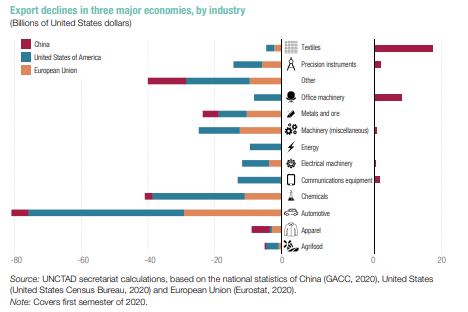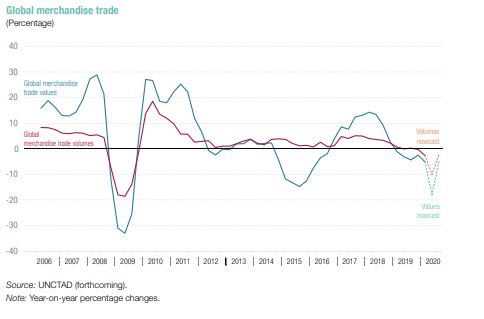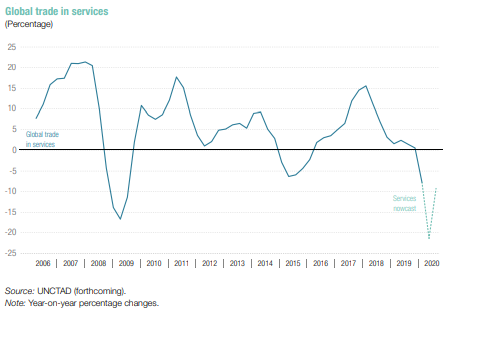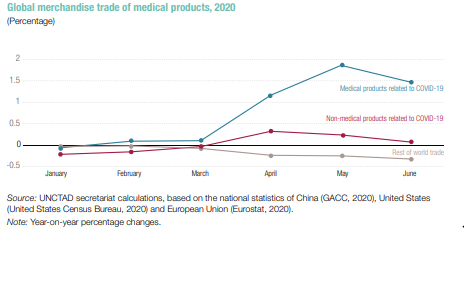Economics Assignment on International Trade Economy
Question
Task:
PART A: Structural Frameworks/Theoretical Traditions
Using the readings supplementary literature as recommended or desired, describe in your own words, and citing appropriate sources, any three (3) of the following theoretical traditions of International Political Economy
a. Realism ? international economy as a vital economic tool
b. Liberalism? roles of international economic institutions
c. Marxism? class struggle and colonies at international level
d. Constructivism ?norms of economic society for growth and performance
PART B: Critical Analysis
The Global economy faces some huge unsustainable imbalances that taken together with the Global banking system's fragility and the failure of 9 years of low-interest rates to have done much to help out the Global Economic leave the Global economy in a fragile state. The Covid-19 pandemic is another economic shock that needs political decisions to mitigate the negative economic and political impacts. One of these substantial Global imbalances is the trade deficit between the USA and China and the USA and the EU.
In light of the above, please answer the following questions through this economics assignment:
1. Assess the current magnitude of the trade imbalances between the USA and China and the USA and the European Union.
- Critically analyze the impact of the Covid-19 lock-down political decisions on the trade imbalances.
- The imposition of trade tariffs.
- Present your findings using numerical analysis and charts.
2. Offer some analysis of what you think the global economy's effects maybe should the trade imbalances continue to grow.
Here you can reference, for example, the effects on exchange rates, employment, and wages in the USA, China, and the European Union economies.
Answer
Introduction
This paper on economics assignment highlights the international trade economy. There are two aspects discussed in this paper; the first one discusses the impacts imparted by the COVID 19 over the trade imbalances and discusses the vital recovery methods. Realism, Liberalism and Marxism are the concepts discussed in the first part of the paper. Later on, critical analysis is presented that highlights trade imbalances between the U.S.,China and E.U., it also highlights the impact of COVID on global trade (Akyüz, 2017). Economic shocks and vital political decisions to revive the economy are also discussed. This paper also accounts for the discussion on exchange rates and employment. Geographical representation of the trade during the pandemic period is also highlighted.
PART A
Conceptual Evaluation
Realism
Realism is something that is an accurate, unembellished, and detailed description in the form of art. Realism is based on imaginative idealization in favor of close observations regarding outward appearances. It can also be stated that in a broad sense, realism consists of various artistic currents in different civilizations. It can be found in various visual arts of the Hellenistic Greek sculptures. It is an evident fact that realism does not originate fromthe aesthetic program till the 19th century. Indeed it was observed as one of the significant trend associated with French paintings and novels between 1850 and 1880. The first use of the word realism was to describe a doctrine based on the imitation of the past's artistic achievements. It was also based on the accurate and truthful depiction of models offered by the contemporary and natural life to the writer.
Realism is a relevant concept in the international economy. In the 19th century, realism was stimulated by other intellectual developments. "The anti-romantic movement" of Germany was among it, and it also emphasizes the common person as of the artistic subjects. The rise of journalism also takes place after it and the development of photography via its capability to reproduce visual appearance with extreme accuracy. All of these developments ultimately stimulated interest inaccurately recording society and contemporary life.
Liberalism
Liberalism can be treated as a political doctrine that enhances and support the freedom associated with asingle person to be the central problem of politics. Liberals typically believe that a government plays a crucial role in protecting individuals from harming other individuals. Still, they also recognize that government itself is a threat to people's liberty in some instance. Thomas Paine, a renowned revolutionary and American pamphleteer, described the government as a necessary evil. Hence, a need arises to devise a system that can provide the government with the power necessary to protect individuals' liberty and prevent those who govern from abusing that power.
Liberals believe that international institutions play a key role in cooperation among states. Along with the correct international institutions and highly increasing interdependence (that includes different sort of cultural and economic trades), states have the opportunity by which conflicts can be reduced.
Modern liberalism includes different issues such as women's reproductive and other rights, same-sex marriage, voting rights for all adult citizen, environmental justice, civil rights, governmental protection, and the associated right towards an adequate standard of living.
Marxism
Marxism can be termed a "social, economic and political philosophy" named after its founder Karl Marc. It effectively examines its effect on productivity,labour economic development and capitalism. It also emphasizes a revolution of the worker to overturn capitalism so that it favours communism. Marxism also posits that a struggle between the different social classes defines economic relations within a capitalist economy, which will ultimately lead to revolutionary communism.
Marxists believe that the economy is an instrument to exploit lower social classes. These interactions are effectively highlighted by the inequalities between the bourgeoisie and the proletariat. The critical theories of Marxism also advocate that socioeconomic contexts eventually determine political strategies.
Part B
Global economy
The global economy has been significantly transformed over the past decades. It is now governed and organized by the collaboration of nations. These changes also possess repercussions that impact the flow of services and goods between nations and people's movement. As witnessed during the past century, if there is a great fluctuation, it might cause a global economic crisis.
The global economy is a term used to describe the worldwide economic activities that happen between multiple countries. These economic activities can brutally impact the countries that are involved. Several characteristics are included in the global economy. Globalization is a term that effectively describes the procedure through which economies, whether regional or international, got integrated (Cassegård, 2017). It also focused on integratingcultures and societies via the international network of transportation, trade, communication and immigration. International trade, finance and global investment are other constituents of the global economy. There is an ongoing trade war between the U.S, China and E.U. This is resulting in the creation of a trade imbalance. The trade deficit of U.S. goods in China has also decreased by 17.6%, around 73.7 billion dollars. The major reason why the greatest trade conflict has arisen is associated with the U.S.'s intentions to significantly reduce the trade deficit of bilateral trade and increase the number of jobs. The second reason is limiting the access of Chinese companies to American technologies and preventing digital competition.

(Source: unctad.org, 2021)
Importance of international trade in the global economy
International trade between the countries can be termed as an important factor that contributes towards enhancing the living standards; it also provides employment and enables consumers to enjoy a wide variety of goods. International trade has taken place since the earliest civilizations. Still, in recent years, it is witnessed that it is playing a significant role in boosting the country's GDP as it enhances it via imports and exports. The World Bank stats reflect that the concern associated with the potential negatives of the trade is increasing, particularly the unbalanced benefits that are affecting it.
Certain countries naturally have abundant raw materials, such as Congo have diamonds, New Zealand have butter, and Iraq has oil and many more. A theoretical model named Eli Heckscher and Bertil Ohlin highlights that the countries specializing in the production and exporting goods can earn a decent amount of profits. The countries importing it will get the resources that are scarce for them. There is also a comparative advantage theory that states that countries must specialize in those goods in which there is a relatively lower opportunity cost. Even if the two countries produce two goods at a lower total cost, they should produce everything (De Landa and Harman, 2017). Different countries are specialized in different sectors,making things efficient when they work together. Trade assists countries in specialization. There are certain limitations associated with the comparative advantages theories, but still, it effectively explains certain aspects of international trade. It also presents a greater choice for the consumers; it provides them with different options to get better quality goods at a lower price. Another manor aspect of the new trade theory is that it doesn't matter the country's specializations; on the contrary, it is vital to pursue a specialization. This will help companies get benefited from the economies of scale,which usually outweighs other factors. Service sector trade is another major aspect of international trade; exporting cars and importing banana differs (Raymen, 2019). These things cannot be aligned with each other. While exporting cars, various other services such as insurance, banking, and I.T. services go along with it. A global economy having modern communication enables various micro trades that might be difficult during the pre-internet age.
Protectionism
Protectionism can be stated as an economic policy that restricts imports from different countries through import quotas, tariffs and various other governmental regulations. Trade protectionism's major objective is to protect the vital economic interest of nations such as commodities and key interest. Protectionism was used during the pandemic to protect the individuals (Hübler and Pothen, 2017). The government formulated a policy to ban import and export during a pandemic, and thus it is engaging in protectionism. The trade war between US-China and the E.U. can be treated as some examples of protectionism that eventually impact the global trade of these respective nations.
Liberalization
Liberalization can be stated as a procedure or how control of the state over economic activities is eliminated. It effectively provides greater autonomy to the business enterprise in decision making, and it also eliminates the government's interference. Liberalization eventually increases global trade, but it also poses challenges for domestic trade because of the increased competition (Kwan, 2020). Due to the stiff decline in GDP, governments of different nations are moving towards liberalization in multinational companies. This can assist in normalizing the economy post-pandemic.
Economic shocks: Impact of COVID-19 on the global economy
The coronavirus pandemic has brutally impacted global trade as it has reached almost every country in the world. Its spread resulted in national economies and businesses counting costs; governments are also struggling with the new lockdown measures to tackle the spread of the virus. New vaccines are developed still there are many wandering about recovery. This pandemic has caused big shifts in the stock market; this can ultimately impact the value of pensions and savings accounts (Geda, 2020). In response to the declining trade, various central banks have slashed interest rates to encourage borrowing and spending to boost the national economy. The analysts also believed that other lockdowns and delays in the vaccination programmes might trigger immense market volatility.
Impact of a political decision on trade
The pandemic coronavirus has disrupted the global trade flows. However, there is significant evidence regarding its impact on the trade performance of developing countries. There are different sorts if reactions by the host nations due to the pandemic. Political restrictions were imposed, and because of this, the borders are sealed, and hence no international trade can occur during that time (Tadjibayev, 2020). The major reason for the spread of coronavirus is travel because this virus is highly transmissible. It spreads by touch, and other means highlights that social distancing is the most effective way to tackle it. Countries like India, New Zealand, and Australia are among those countries that faced this virus because of regressive travelling and the major reason behind post-pandemic travelling (Nasiret al., 2018). Hence government post-pandemic countries were forced to impose border restrictions that resulted in a huge global trade decline.
Graphical representation of trade during COVID-19
The pandemic caused a disturbance in international trade. Unleashing a health crisis, the demand for medical products increased, and in June 2020, the demand increased from 1.5 percent. Medical products trade was boosted, and revenue was increased because of high pricing.

(Source: unctad.org, 2021)
In the merchandise trade case, the value and volumes both decreased and fell below the zero points on the graph. Heavy losses were incurred because of the lockdown and shift in demand. In the case of services, the trade decreased, and ultimately the industry faced huge losses.

(Source: unctad.org, 2021)
However, trade is expected to rebound after covid, but the uncertainity persists. The economies of China
Experienced declines in sport in automotive, textiles, metals, apparels and others.

(Source: unctad.org, 2021)
Recommendations and Conclusions
The above paper discusses the economic shocks from COVID. It is important to focus on global finances for the development of society. Some recommendations can assist international trade in reviving and operating. Establishing a liquidity facility can provide support to the business. IMF can act as an intermediate and create supporting lines for business growth.
Further, allowing the IMF to borrow from the market by providing collateral security will help the economy. All these measures can assist international trade in bouncing back and operating with profitability. This paper discusses realism and liberalism concepts which are important for economic growth. ?
References
Akyüz, Y., 2017. Global economic landscape and prospects. Presentation made at the briefing for developing countries on Global Trends and Linkages to Geneva Multilateral Processes). Geneva, 13.
Cassegård, C., 2017. Eco-Marxism and the critical theory of nature: two perspectives on ecology and dialectics. Distinktion: Journal of Social Theory, 18(3), pp.314-332. De Landa, M. and Harman, G., 2017. The rise of realism (p. 240). Cambridge: Polity.
Dev, S.M. and Sengupta, R., 2020. Covid-19: Impact on the Indian economy. Indira Gandhi Institute of Development Research, Mumbai April.
Geda, A., 2020. The macroeconomic and social impact of COVID-19 in Ethiopia and suggested direction for policy response. Department of Economics, AAU.
Hübler, M. and Pothen, F., 2017. Trade-induced productivity gains reduce incentives to impose strategic tariffs. Economic Modelling, 61, pp.420-431.
Kwan, C.H., 2020. The China–U.S. trade war: Deep?rooted causes, shifting focus and uncertain prospects. Asian Economic Policy Review, 15(1), pp.55-72.
Nasir, M.A., Naidoo, L., Shahbaz, M. and Amoo, N., 2018. Implications of oil prices shocks for the major emerging economies: A comparative analysis of BRICS. Energy Economics, 76, pp.76-88.
Raymen, T.W., 2019. 'The Enigma of Social Harm and the Barrier of Liberalism: Why Zemiology Needs a Theory of the Good'.
Tadjibayev, M., Shegay, A. and Krivosheeva, G., 2020. The development of realism in American literature. European Journal of Research and Reflection in Educational Sciences, 8(10), pp.145-150.
unctad.org, (2021), Available at:https://unctad.org/system/files/official-document/osg2020d1_en.pdf












